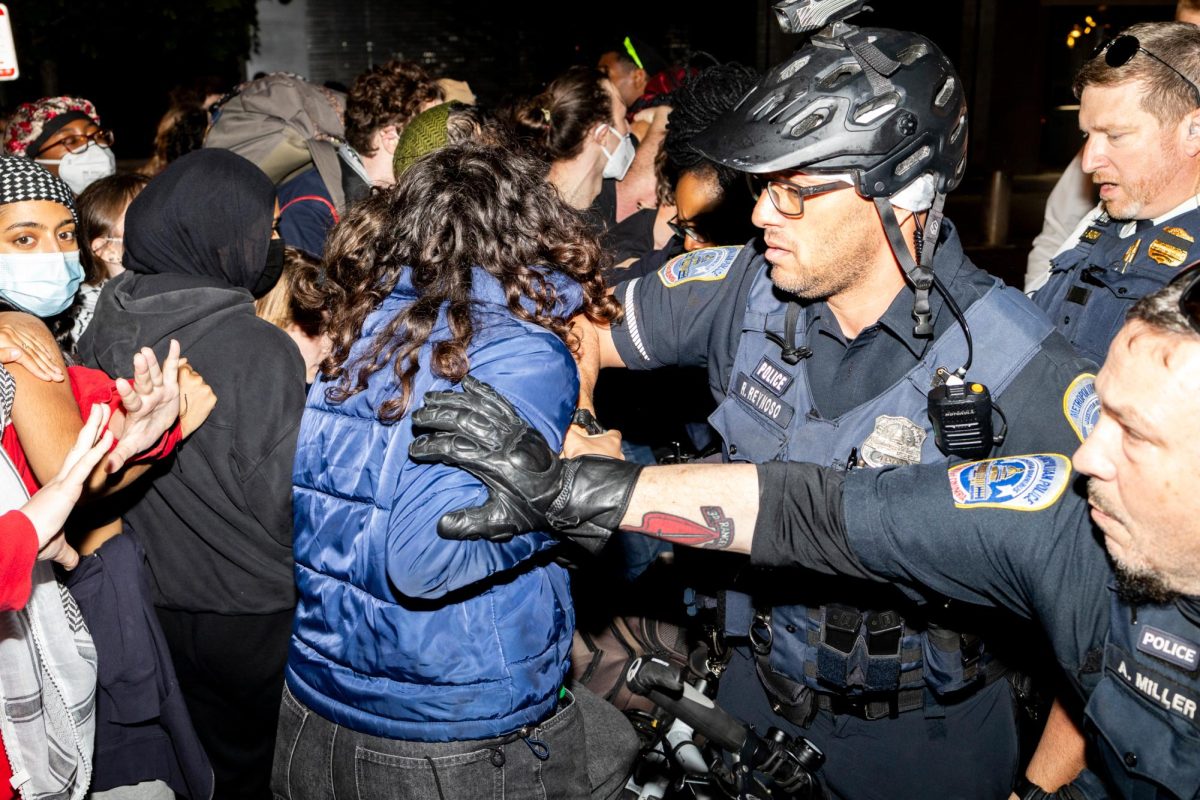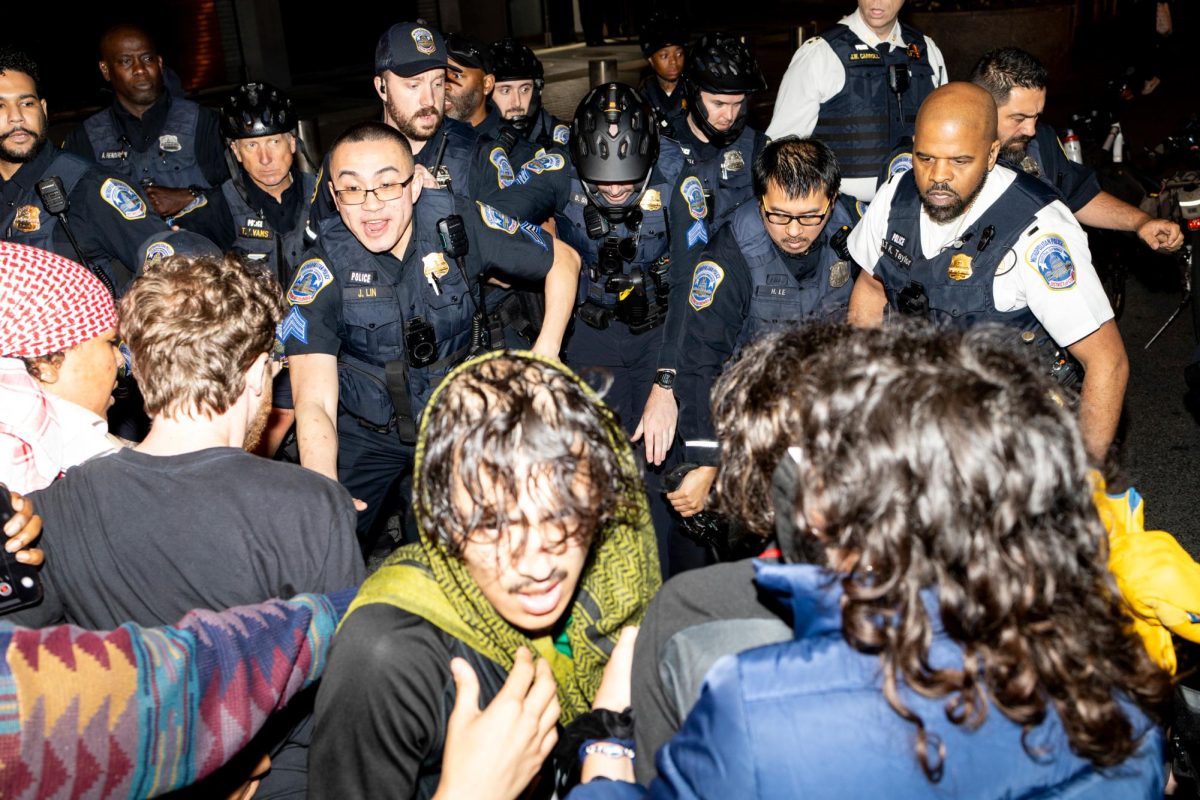GW officials are warning students to curtail the use of file-sharing programs like KaZaA and Morpheus or lose their Internet connections, the University announced last week.
Officials say the sharing applications, which take up large amounts of bandwidth, the amount of information that can be processed at one time, slow down GW’s network, decreasing the usability of Webmail, GWeb and Prometheus.
The warning comes after the University issued a statement in the fall restricting excessive bandwidth use. A statement released last Thursday detailed an increased enforcement of punishment of those who violate the restrictions.
“(The large amount of bandwidth used by personal computers) is significantly interfering with the academic and administrative uses of the networks serving GW users,” said Ronald Bonig, executive director of Information Systems and Services technology operations.
A committee of ISS and Resnet staff and University lawyers is currently “notifying the top bandwidth users to reduce their usage or justify its academic purpose, whatever it may be, or lose their connection,” Bonig said. He could not specify the level of bandwidth use that is excessive.
According to a new plan, students violating the code of conduct will first receive a similar warning. If they continue to use excessive amounts of bandwidth, they will lose their connection until they agree to cut down use.
Upon the third notice of overuse, the University will shut off the student’s network connection for the remainder of the semester.
While some students with more than 2,000 files have received notices via e-mail to cut back their bandwidth usage, no students have had Internet privileges revoked, Bonig said. The University can identify users by detecting activity from individual network ports.
The code of conduct states students can use the network for non-academic use provided it does not interfere with University computing facilities, financially burden GW or violate other University regulations or law.
Students who live off campus or live in a GW residence hall that does not use GW’s on-campus network are unaffected by the policy.
Bonig said most of the increase in GW’s bandwidth usage is caused by the use of peer-to-peer file sharing networks, noting officials have seen the protocols, or Internet addresses, used for peer-to-peer file sharing garner a “several hundred percent increase” in the past year.
Peer-to-peer file sharing software sets up each user as both a server who distributes files, and a client, who can receive files. Through this system, other users of a file-sharing network can download files from any user’s machine, while at the same time other users can download files from another computer. Peer-to-peer file-sharing networks naturally result in greater bandwidth usage – each user is allowed to serve up the files they receive. Students can shut off the sharing option so outside users cannot access files to limit bandwidth usage.
The increased use has forced GW to buy progressively larger Internet connections, Bonig said, although he declined to say how much file sharing has cost the University financially.
While freeing up network resources is the University’s primary concern in limiting student file sharing, officials said they hope enforcing the code of conduct will also limit copyright infringement, inherent in most Internet file sharing.
Almost all of the files shared over peer-to-peer networks are copyrighted. Therefore, distributing them violates laws such as the Digital Millennium Copyright Act, which prohibits sharing copyrighted files over digital networks without proper permission from the media’s creator or owner.
Last Thursday the Recording Industry Association of America filed suit against four students at four different schools who distributed copyrighted music files on their campus network, according to the Chronicle of Higher Education. This case marks the first time the industry organization went after individual students who had shared files, rather than the institution providing them with the bandwidth capabilities.
Despite new warnings, many students said they are planning to continue using their peer-to-peer file sharing software.
Freshman Rob Pauls, a “constant” KaZaA user, said he plans to continue using the but will turn off its ability to share content with other users.
“I’ve found that sharing usually slows down my downloading, anyway,” he said.







